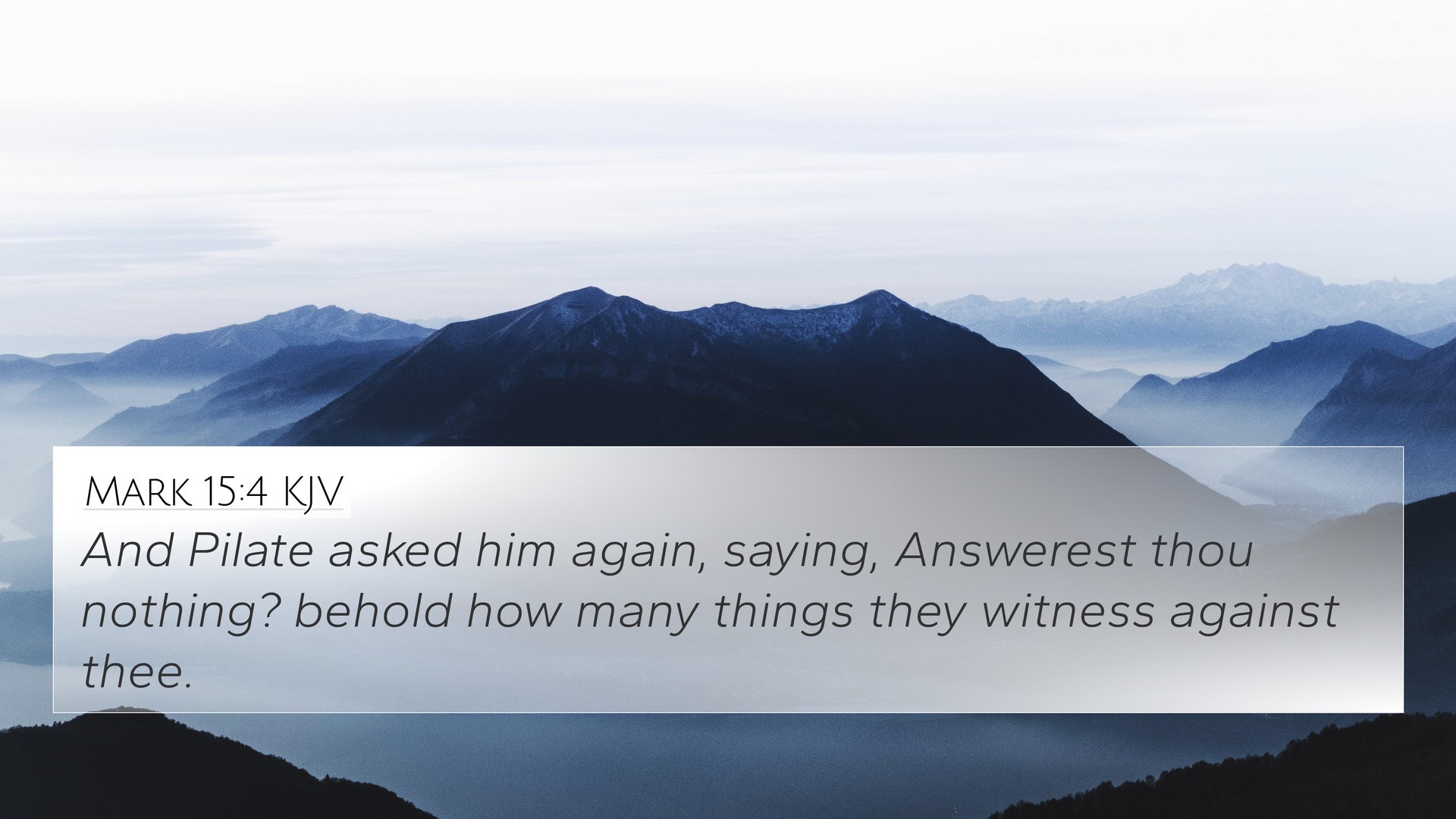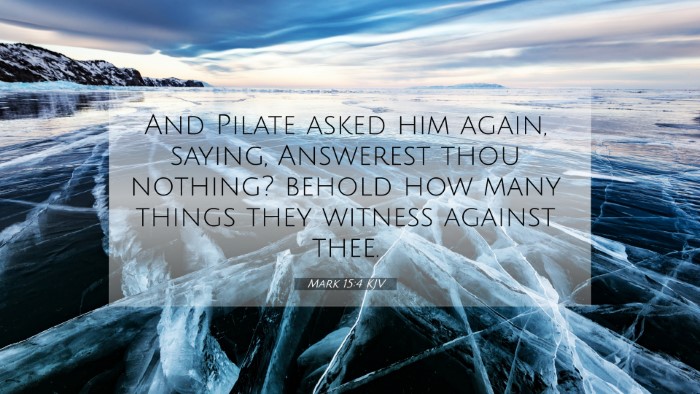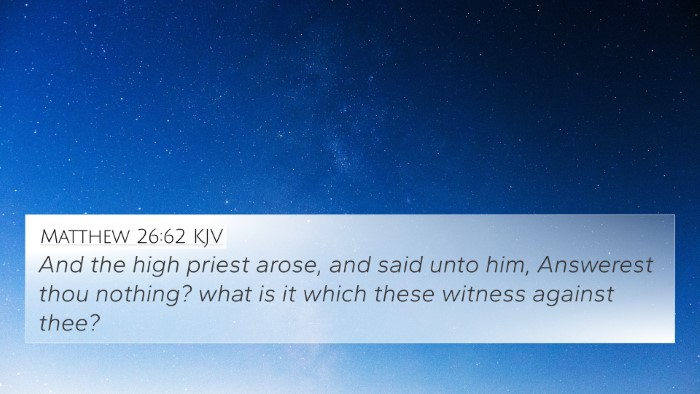Understanding Mark 15:4
Mark 15:4 presents a pivotal moment in the Passion narrative, where Jesus stands trial before Pilate. It reads:
"And Pilate asked Him again, saying, 'Answer You nothing? behold how many things they witness against You.'" (Mark 15:4)
Summary of the Verse
This verse encapsulates a significant interaction between Jesus and Pontius Pilate, highlighting Jesus' silence amidst the accusations brought against Him. Pilate, perplexed by Jesus' lack of defense, questions why He remains quiet in the face of such hostility.
Commentary Insights
-
Matthew Henry's Commentary
Henry emphasizes the fulfillment of Old Testament prophecies regarding the Messiah, particularly Isaiah 53:7, which speaks of the Lamb led to slaughter, who opens not His mouth. His silence signifies obedience to God’s will and illustrates the spiritual authority behind His mission, contrasting human judgment with divine purpose.
-
Albert Barnes' Notes
Barnes notes that Pilate’s questioning reveals the Roman governor’s confusion and perhaps even admiration for Jesus. He suggests that Jesus’ calm demeanor serves as a profound testimony to His identity and purpose. This reaction from Jesus can be seen as an example of letting God’s plan unfold without human intervention or defense.
-
Adam Clarke's Commentary
Clarke reflects on the power dynamics at play, highlighting how Jesus, despite facing capital charges, holds a position of strength. He points out that the silence can also be interpreted as a refusal to engage in a defense that would misrepresent His mission. Clarke emphasizes the significance of this moment for understanding Jesus’ role in salvation history.
Bible Cross-References
This verse has notable connections with other scriptures that enhance its understanding:
- Isaiah 53:7 - Highlights the prophecy of the suffering servant who remains silent before His accusers.
- Matthew 27:12-14 - Parallel account of Jesus’ trial before Pilate demonstrating His silence amid accusations.
- John 18:33-38 - Provides a deeper dialogue between Jesus and Pilate, illustrating Jesus’ kingship and purpose.
- 1 Peter 2:23 - Reinforces the theme of suffering without retaliation, paralleling the attitude demonstrated by Jesus.
- Luke 23:9 - Similar to Mark, where Pilate questions Jesus but receives no response, highlighting the mystery of Jesus’ mission.
- Proverbs 29:11 - Discusses wisdom in withholding responses, relating to Jesus’ strategic silence.
- Acts 8:32-35 - Refers to the Ethiopian eunuch reading about the suffering servant, deepening the understanding of Isaiah’s prophecies.
- Philippians 2:7-8 - Discusses Jesus’ humility and obedience even unto death, paralleling the silence He exhibits.
- Revelation 5:5 - Offers insight into Jesus as the Lion of Judah, whose silent suffering leads to ultimate victory and authority.
- John 19:9 - Another reflection of Pilate's questions and Jesus’ silence, intensifying the trial's poignant nature.
Thematic Connections
This verse also resonates with broader Biblical themes, such as:
- Silence in Suffering: Reflects a theme throughout scripture where silence can signify strength and resolve in the face of injustice.
- Fulfillment of Prophecy: Connects Jesus’ actions to Old Testament writings, reinforcing the continuity of God's plan through history.
- Authority and Kingship: Jesus' demeanor challenges earthly authorities and demonstrates divine royalty that transcends human courts.
Applications for Cross-Referencing
Studying Mark 15:4 in conjunction with its cross-references encourages a multifaceted interpretation:
- Utilize a bible concordance to explore similar themes of silence and suffering.
- Engage in a cross-reference Bible study to draw connections between the teachings of Jesus and the prophetic texts.
- Create a bible reference guide focusing on the interactions between Jesus and secular authority figures depicted in the Gospels.
- Implement cross-referencing Bible study methods for a richer understanding of how autonomous events in scripture inform one another.
Conclusion
Mark 15:4 invites readers to contemplate the scene of Jesus' trial, revealing deeper truths about His purpose, identity, and the nature of divine sovereignty. Engaging with this verse through bible verse cross-references opens pathways to a more profound understanding of scripture, enhancing the study of Bible verses that relate to each other and supporting thematic Bible verse connections.





